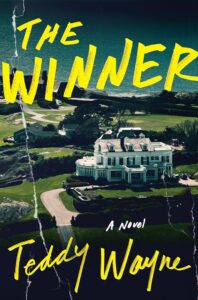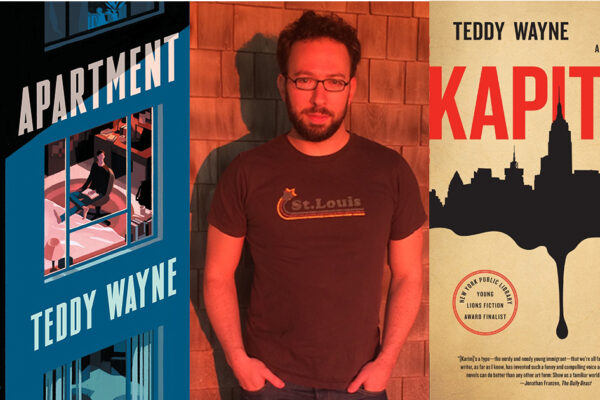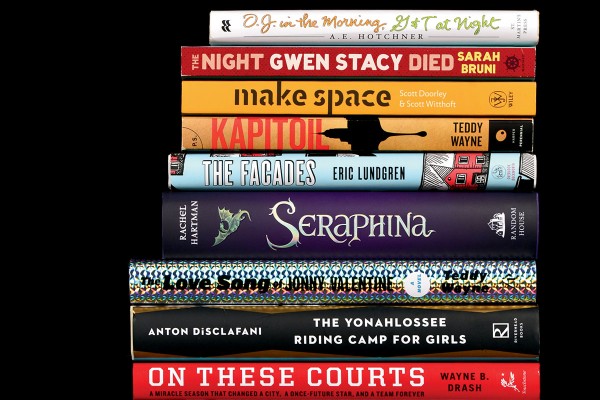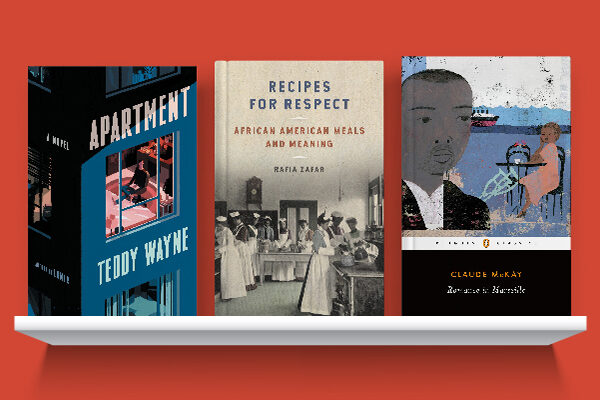Teddy Wayne, MFA ’07, has made a career out of writing novels that are set in some of the defining cultural moments of this 21st century.
His first novel, Kapitoil (2010, begun while he was a WashU student), saw his main character grappling with the morality of Wall Street. The Love Song of Jonny Valentine (2013) dealt with the pitfalls of celebrity in the music industry; Loner (2016) saw a Harvard freshman dealing with toxic masculinity and the pressures of social media.

His latest, The Winner, begins in a gated community near Cape Cod in the early days of the pandemic, the summer of 2020, a time in which, Wayne says, made the disparity in our country a matter of life and death.
“Some people got to go to summer houses,” Wayne says of the pandemic. “Some people had to go to warehouses where they could die,” he says. Timing The Winner when he did only added to the drama in a novel filled with it — along with a bit of humor and social commentary on the lifestyles of the rich and famous.
“I knew this place in Massachusetts that I always thought would make a good setting,” Wayne says. “Having it set there during the pandemic felt like it was a way to explore the injustice and unfairness of American life in 2020. It provided a thematic undercurrent about whom we’ve become: Who gets to live, who gets to die, who are the winners and the losers? I wasn’t interested in writing a novel where a group of friends repairs to a country house and talks about old times.”
The story centers on the character of Conor O’Toole, a blue-collar law school graduate who worked his way through school with a pretty decent backhand and an above-average ability on the tennis courts. When he gets invited to spend the summer in a gated beach community to give private lessons to wealthy patrons, he accepts, figuring it would offer time and opportunity to make a little money — even send some home to his diabetic mother — study for the bar and maybe find a job at a law firm.
But nothing goes to plan. When his lessons aren’t as in-demand as he had hoped, O’Toole gets seduced both by the affluent lifestyle and a wealthy divorcée who ends up paying him for more than tennis lessons. He also gets a girlfriend, a beautiful young writer named Emily who falls for him and also represents a potential ticket out of his blue-collar life. What follows is a thriller that engrosses until the very last page, in which O’Toole is presented with, and makes, a series of moral choices that determine the course of his life.
“As I was writing, I was thinking of this as perhaps a snapshot of the country’s moral character,” Wayne says, “and how, over the past several years, this sense that corruption is happening in very insidious ways, from our most powerful leaders in politics and business on down — and what kind of trickle-down effect that could have on us. How people are feeling like, ‘Well, if our political leaders are committing murder, so to speak, and getting away with it, why can’t I?”
Can Conor O’Toole escape with his morality intact? The Winner was published May 28 and was on most-anticipated lists from the Los Angeles Times to the New York Post. It was an Esquire Book club pick — which called it “gutsy and shocking.” The New York Times Book Review said it was “seductive … consistently fun” and “The Graduate with an advanced degree.” It was listed as one of Vogue’s “Best Books of 2024 So Far.” And last March, Columbia Pictures/Pascal Pictures announced the purchase of the rights to the screenplay for The Winner, with the author adapting his novel himself.
“The deepest pleasure comes from the work itself, and the only way to get back there is to write something new.”
Teddy Wayne
Wayne, who lives in New York City with his wife, writer Kate Greathead, and their two children, will spend the summer finishing up that screenplay, promoting The Winner and mulling over his next project, so he can get back to what he loves: the writing process.
“Typically, by the time the book is published, you’ve stopped working on it, anywhere from six to 12 months earlier. And you feel divorced from the writing,” he says. “But then you remember that the most fun parts of the process were those blissful moments when you were in the zone.
“The deepest pleasure comes from the work itself,” he says, “and the only way to get back there is to write something new.”
Whatever that “something new” is, we’re likely to find a protagonist navigating life in some sort of iconic cultural moment. “What interests me in all my writing,” Wayne says, “is some combination of the topical, via cultural critique, and the universal challenge of human connection.”


